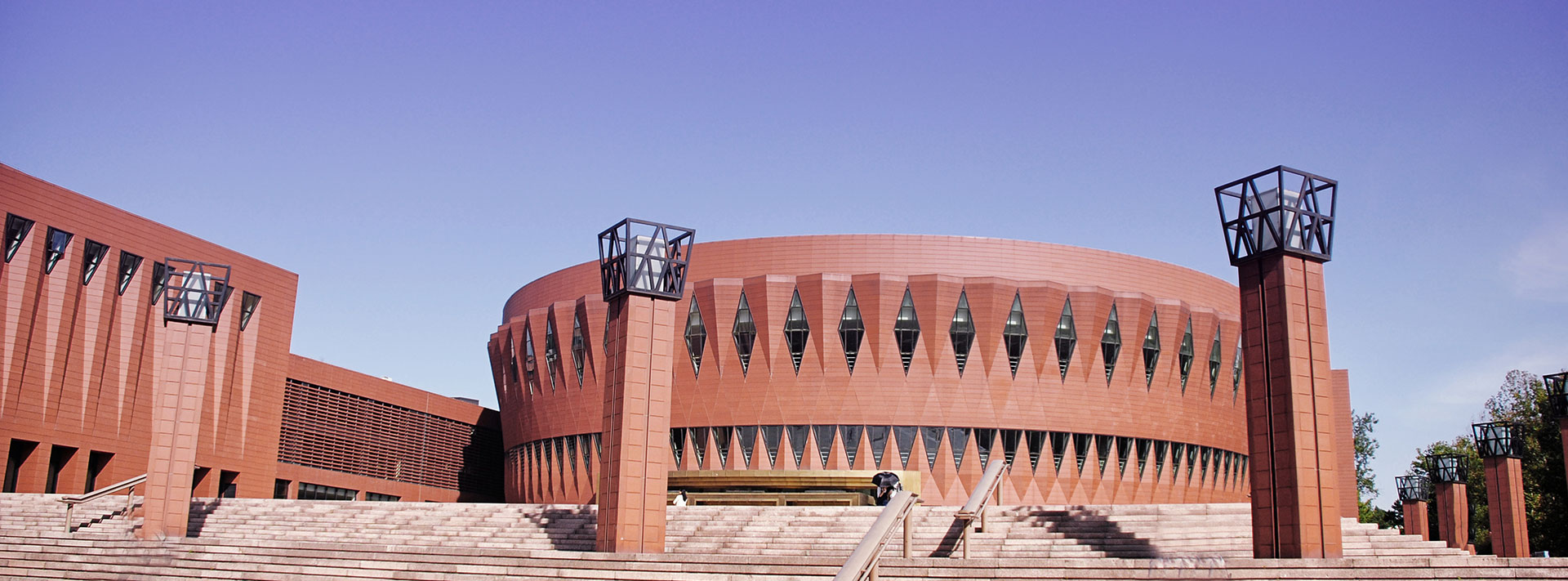In the afternoon of October 26, the 2018 19th Annual F.Y. Chang Lecture was held in the Moot Court at Mingli Building of School of Law, Tsinghua University.
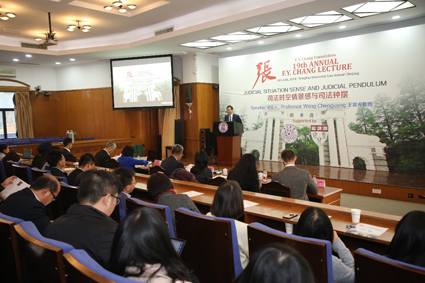
Ambassador Julia Chang Bloch, the Founding President of US-China Education Trust, Ms. Rhoda Chih An Chang, a senior attorney at the Judicial Council of California, Dean Shen Weixing and Vice Dean Cui Guobin of School of Law, Tsinghua University attended the lecture.
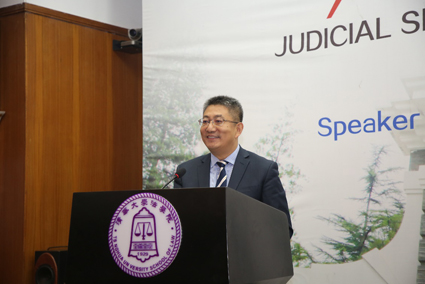
Vice Dean Cui Guobin hosted the Annual F.Y. Chang Lecture. Dean Shen Weixing and Ms. Rhoda Chih An Chang gave the welcome speeches. On behalf of Tsinghua University Law School, Dean Shen Weixing extended warm welcome and expressed his heartfelt thanks to Ambassador Julia Chang Bloch and all the guests. Then, he briefly introduced the F.Y. Chang Foundation and Mr. Chang Fu Yun. He believed that through promoting communications among scholars of China and the United States, we could provide a larger platform for internationalized law talents. Meanwhile, Ms. Rhoda Chih An Chang expressed deep love and honor to her father, Mr. Fu.Yun. Chang, and shared her wonderful memories in Tsinghua University with the audience. She sincerely hoped that more cooperation will be conducted between Tsinghua and the F.Y. Chang Foundation.
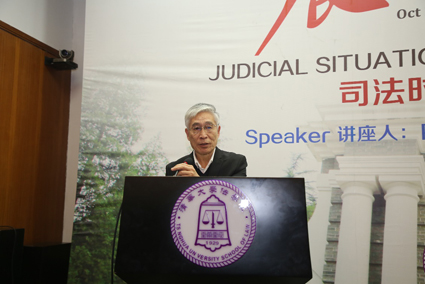
After the welcome speech, Professor Wang Chenguang gave his lecture, with the topic as Judicial Situation Sense and Judicial Pendulum. By citing some popular cases like the murder happened in Kun Shan, the changing judicial attitude toward environmental public interest litigation, and the judicial interpretation to falsification of clinical trial data on drugs, Professor Wang proposed the theoretical explanation on the transition of decision-making put forward by Karl N. Llewellyn, an American realist jurist. He predicted that more responsibility will be shouldered by the judicial arbiter due to the decision-making transition and judicial situation sense. The arbiters need more capabilities in judicial weighing. Professor Wang also analyzed the influencing factors for decision-making transition for several aspects, such as theoretical causes, social influences, international environment and public psychology, etc. He considered that if judicial situation sense can affect judicial pendulum, the judges have to be overwhelmed by the sense of judicial situation. And this transition involves the changes in major social issues. Therefore, the transitions in decision-making have impacts on the results of major case judgement.
All the law experts, scholars and students presented were touched by the lecture given by Professor Wang Chenguang. They had a heated discussion and agreed to push forward the construction of the rule of law process in China.
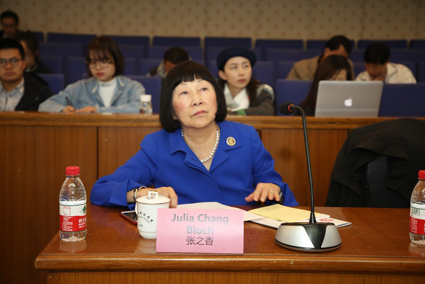
In the end, Ambassador Julia Chang Bloch delivered a closing speech. She said that it was an honor for her to attend this excellent lecture given by Professor Wang Chenguang. And she was also delighted to see that the audience had shown strong interest to the lecture content. She believed that her father will be gratified as well by knowing that there were many outstanding talents showing their love and focus on law.
The Annual F.Y. Chang Lecture, which honors the life of Chang Fu-yun, a Boxer Indemnity Scholar and the first Chinese to graduate from Harvard Law School, is a joint program of Peking University Law School, Tsinghua University Law School and the Harvard University Law School East Asian Legal Studies Program. The Lecture invites prominent scholars and jurists from China, Hong Kong, Taiwan, and the US to share their expertise in carrying on F.Y. Chang’s legacy of extending Sino-American understanding and cooperation through the rule of law. For the past 30 years, the F.Y. Chang Lecture has been a highlight of the F.Y. Chang Scholars program, which has produced a new generation of over 70 Harvard-trained Chinese legal scholars and practitioners.


